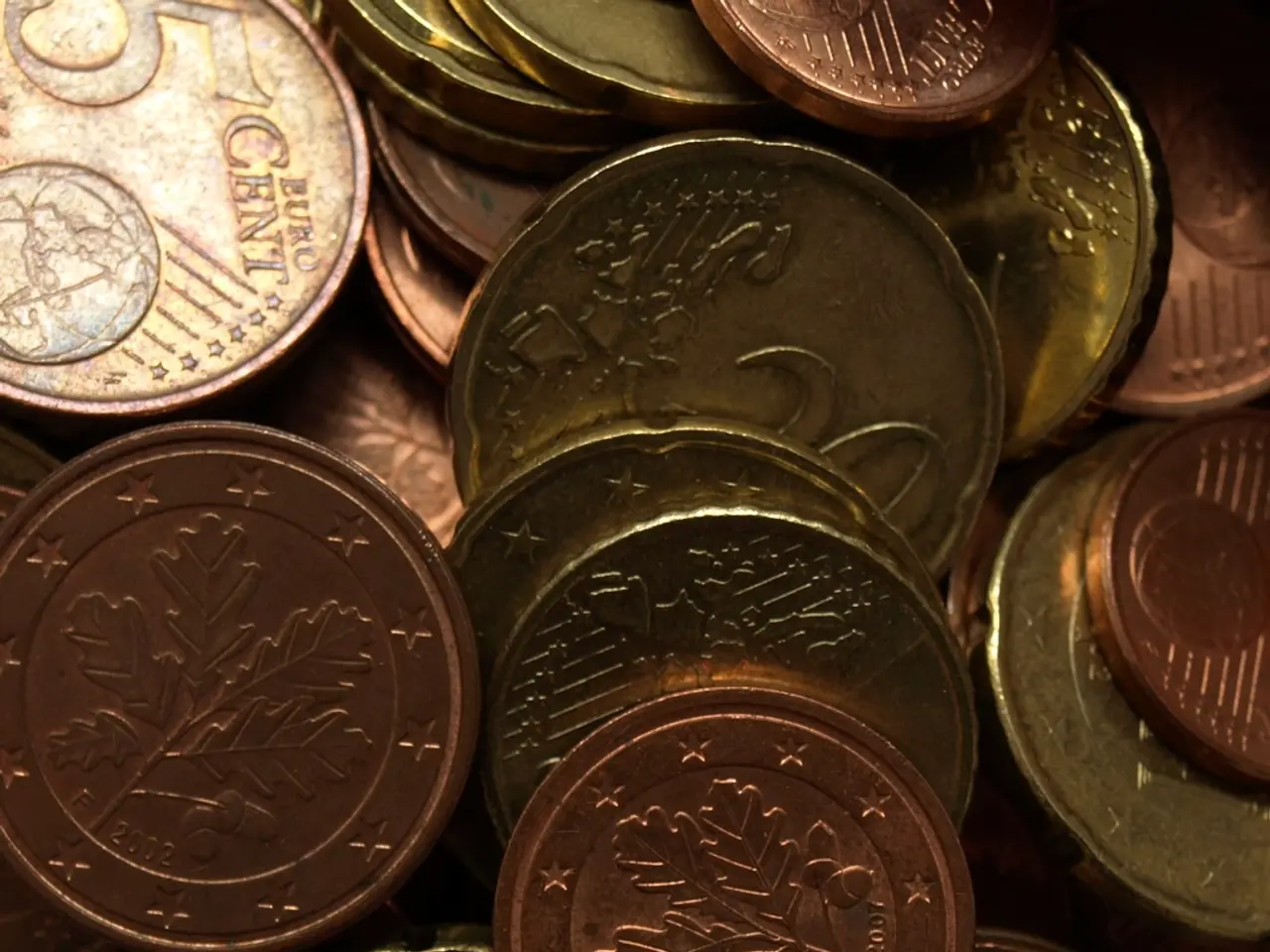Can El Salvador's venture into Bitcoin yield returns? gambling on cryptocurrency success?
El Salvador's Bitcoin Adoption Journey: A Year In Review
El Salvador made history in 2021 by becoming the first country to adopt Bitcoin as legal tender. The move, announced by President Nayib Bukele, was a bold and somewhat risky endeavour, particularly for a country with a large unbanked population [6][7].
Since then, the country has been working diligently to integrate Bitcoin deeper into its economy and financial system. One of the most significant developments is the plan to establish Bitcoin-only banks in 2025. These banks, if implemented, would operate fully in Bitcoin, aiming to boost financial inclusion by targeting unbanked populations, reduce remittance costs, and promote economic sovereignty by bypassing traditional banking intermediaries [1][2].
The government has accumulated Bitcoin reserves, with reports in 2024 indicating an addition of approximately $300 million in Bitcoin holdings as part of the legal tender experiment. This supports the country’s strategy to leverage Bitcoin as a hedge against inflation and economic instability, common challenges in emerging markets [3].
However, the International Monetary Fund (IMF) has expressed concerns about Bitcoin's volatility and the risks it poses for macroeconomic stability. This, coupled with mixed public sentiment domestically, has led to a need for more extensive public education and regulatory frameworks [3][4][5].
Despite these challenges, the government remains committed to Bitcoin adoption. Volcano Bonds are being considered as a funding mechanism for Bitcoin City, a proposed city powered by geothermal energy and Bitcoin, which is part of El Salvador's ambitious Bitcoin adoption plan [1].
The success of El Salvador's Bitcoin bet hinges on its ability to produce tangible benefits for the country’s economy and citizens. However, one year after the adoption, there is apprehension about Bitcoin's performance and its ability to achieve its desired goals [1][2].
Crypto adoption outside of El Salvador is growing, with other countries and businesses exploring its potential benefits and challenges. Economic downturn in El Salvador has strained relationships with financiers, making the adoption of Bitcoin as legal tender even more challenging [1].
The impact of the "crypto winter" (a period of low prices and decreased interest in cryptocurrencies) on El Salvador's Bitcoin adoption remains to be seen. Regardless, El Salvador's commitment to Bitcoin adoption is clear, and the country continues to push boundaries in its quest to position itself as a global hub for Bitcoin innovation and decentralized finance [1][2][3].
[1] Reuters. (2022, January 28). El Salvador's Bitcoin City: Volcano-powered city to be funded by Volcano Bonds. Retrieved from https://www.reuters.com/business/finance/elsalvadors-bitcoin-city-volcano-powered-city-be-funded-volcano-bonds-2022-01-28/
[2] Cointelegraph. (2022, January 29). El Salvador's Bitcoin City: What we know so far. Retrieved from https://cointelegraph.com/news/el-salvador-s-bitcoin-city-what-we-know-so-far
[3] CoinDesk. (2022, January 28). El Salvador's Bitcoin City: What we know so far. Retrieved from https://www.coindesk.com/business/2022/01/28/el-salvadors-bitcoin-city-what-we-know-so-far/
[4] The Block. (2022, January 28). El Salvador's Bitcoin City: What we know so far. Retrieved from https://www.theblockcrypto.com/linked/111217/elsalvador-bitcoin-city-what-we-know-so-far
[5] CoinDesk. (2022, February 1). IMF warns El Salvador about Bitcoin's volatility as it considers new $1.3 billion loan. Retrieved from https://www.coindesk.com/policy/2022/02/01/imf-warns-elsalvador-about-bitcoins-volatility-as-it-considers-new-1-3-billion-loan/
[6] BBC News. (2021, September 7). El Salvador becomes first country to adopt Bitcoin as legal tender. Retrieved from https://www.bbc.com/news/business-58508621
[7] CoinDesk. (2021, June 9). El Salvador's Bitcoin Law: What it means for the country and the world. Retrieved from https://www.coindesk.com/policy/2021/06/09/elsalvadors-bitcoin-law-what-it-means-for-the-country-and-the-world/
The government is planning to establish Bitcoin-only banks in 2025, aiming to boost financial inclusion and reduce remittance costs. The country's accumulated Bitcoin reserves, amounting to approximately $300 million, are part of its strategy to leverage Bitcoin as a hedge against inflation.




